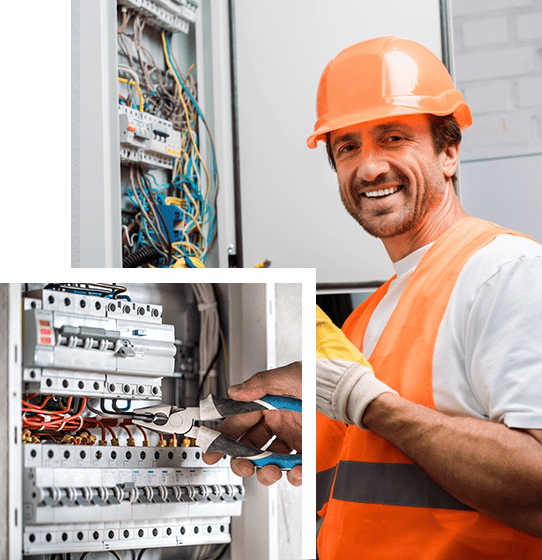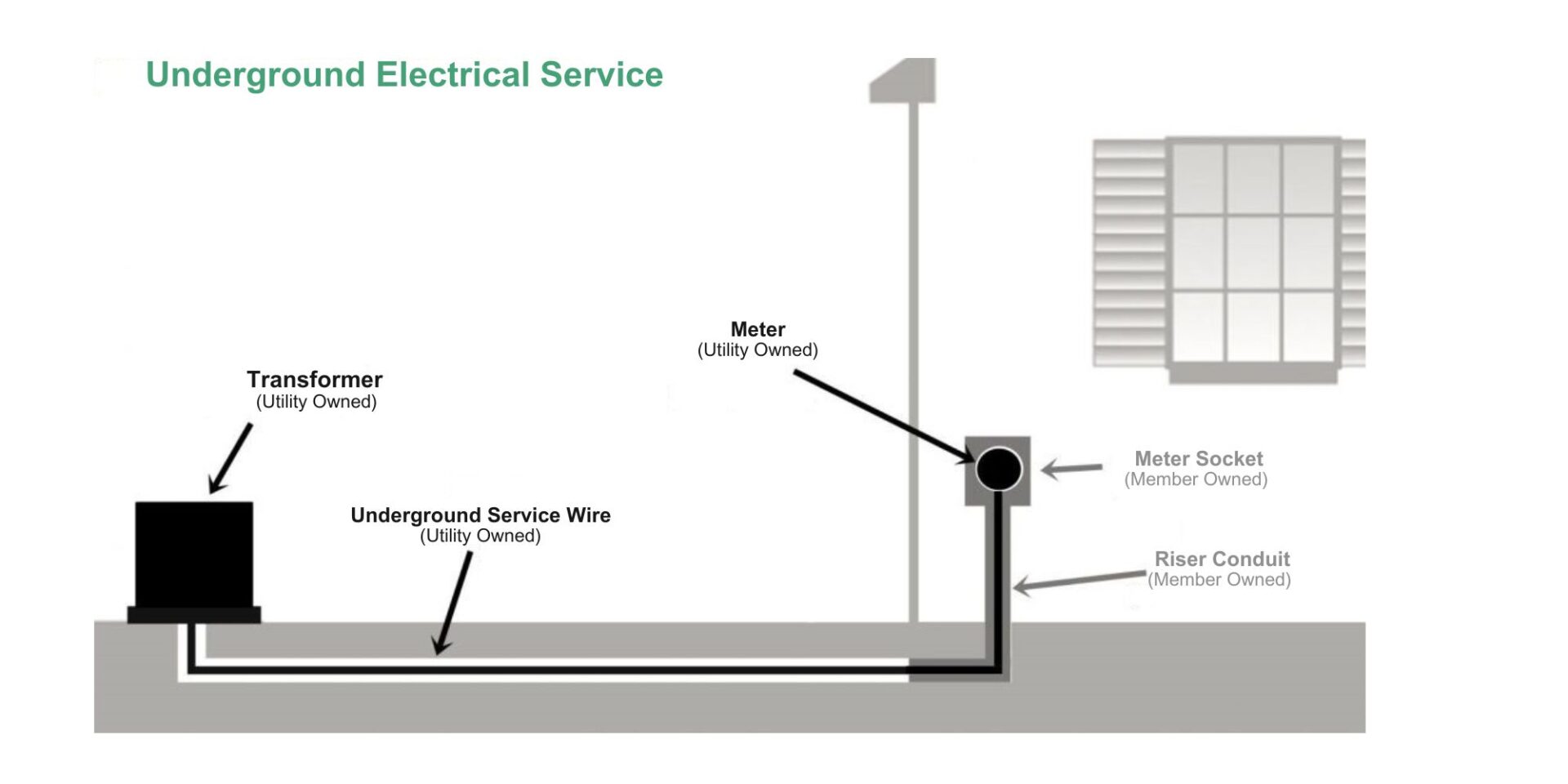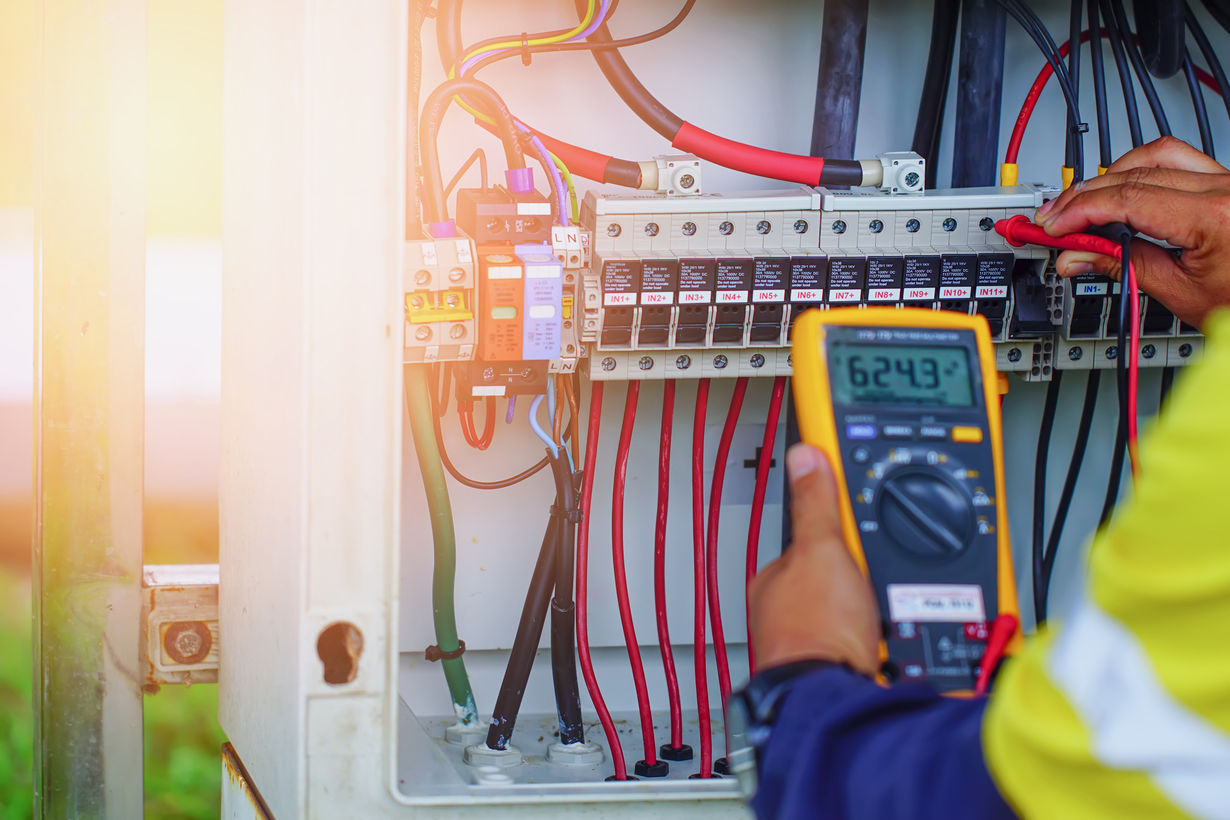Who Else Wants Tips About What Defines An Electrical Service

Electrical Service Provider Guidance To Find The Right One By Namoh
Understanding What Makes an Electrical Service Tick
1. What Does 'Electrical Service' Really Mean?
So, you're probably wondering, "What is an electrical service, anyway?" Well, think of it as the heart of your home's power system. It's the connection point where the electricity company's lines meet your property, and it's what allows you to binge-watch your favorite shows, keep the fridge humming, and charge all those devices. Its a vital setup that keeps the modern world turning and the lights on.
In simpler terms, the electrical service includes all the components and wiring that bring electricity from the utility company's power grid to your homes electrical panel. This panel then distributes the power throughout your house via individual circuits. Without a properly functioning electrical service, youd be left in the dark ages, fumbling for candles!
Beyond just the basic connection, the electrical service also includes essential safety features. Think of it as your home's electrical bodyguard. It's designed to protect your property and its occupants from electrical hazards like overloads, short circuits, and even power surges. These safety mechanisms are super important they prevent fires and keep everyone safe.
Now, the "electrical service" isn't just one single thing. It's a whole system working together. It's like a well-coordinated team, each member playing a crucial role. And just like a sports team, if one member is out of sync, the whole system can suffer. Keep reading, and we'll dive into the specifics.

A&W Addis Electrical Service LLC Just Do It Right
Key Components of Your Home's Electrical Service
2. The Cast of Characters in Your Power Play
Let's take a closer look at the key players that make up your electrical service. First up, we have the service drop or service lateral. This is the connection from the utility company's power lines to your property. If the lines are overhead, it's called a service drop; if they're underground, it's a service lateral.
Next, there's the meter. This little device measures how much electricity you're using. It's what the power company uses to calculate your bill. Think of it as the electricity accountant. It keeps track of all the power your house is consuming. And of course, some meters are now "smart" meters that can communicate with the utility company in real-time.
Then we have the service entrance conductors. These are the wires that run from the point of connection at your home (after the meter) to your main electrical panel. They're like the superhighway for electricity. These conductors need to be properly sized to handle the electrical load of your house, or else you could run into problems.
And finally, the star of the show: the main electrical panel, also known as the breaker box or fuse box (though fuses are becoming less common these days). This is where the electricity is distributed to different circuits throughout your house. It also houses the circuit breakers (or fuses) that protect each circuit from overloads and short circuits. Its the central command station for your homes electrical system. It's like the conductor of an orchestra, making sure each section gets the power it needs.

Sizing Matters
3. Getting the Right Fit for Your Electrical Appetite
Electrical services arent one-size-fits-all. The size of your electrical service is measured in amperes (amps), and it needs to be adequate for the electrical demands of your home. A small apartment might only need a 60-amp service, while a large house with lots of appliances and gadgets could require a 200-amp service or even more.
If your electrical service is too small, you might experience problems like tripped circuit breakers, flickering lights, and difficulty running multiple appliances at the same time. Imagine trying to power a whole city through a garden hose! That's essentially what happens when your electrical service is undersized. It can lead to frustration and inconvenience, to say the least.
How do you know if your electrical service is the right size? Well, it's best to consult with a qualified electrician. They can assess your current and future electrical needs and recommend the appropriate service size. They'll consider factors like the size of your home, the number of appliances you have, and any plans you have for future additions or renovations. Think of it as getting a tailored suit, but for your electrical system. It needs to fit just right.
Upgrading your electrical service is a big project, but it can be necessary if you're adding new appliances, renovating your home, or simply want to ensure that your electrical system can handle your current and future needs. It's also a good idea to consider upgrading if you have an older home with an outdated electrical system. Older systems may not be able to handle the demands of modern appliances and electronics. It's like upgrading from a horse-drawn carriage to a sports car. You'll get better performance and more reliability. Always consult a qualified electrician for an upgrade.

Safety First
4. Guarding Against Electrical Hazards
Electrical safety is paramount. A properly installed and maintained electrical service is crucial for protecting your home and family from electrical hazards. This includes things like ground fault circuit interrupters (GFCIs) in bathrooms and kitchens, which can prevent electric shock, and arc fault circuit interrupters (AFCIs), which can prevent electrical fires.
Regular inspections of your electrical service are also important. An electrician can identify potential problems before they become serious hazards. They can check for things like loose connections, damaged wiring, and outdated components. It's like getting a regular checkup at the doctor. It helps catch problems early and prevent bigger issues down the road.
Never attempt to work on your electrical service yourself unless you are a qualified electrician. Electricity is dangerous, and improper wiring can lead to serious injury or even death. It's always best to leave electrical work to the professionals. Trying to DIY electrical work is like trying to perform surgery on yourself. It's just not a good idea. It's always best to call a trained professional.
One of the important things about your electrical system is grounding. Grounding provides a safe path for electrical current to flow in the event of a fault, preventing electrical shock. Make sure your electrical system is properly grounded and that all your outlets are properly grounded as well. Grounding is like a safety net for your electrical system, and it's essential for protecting yourself and your family.

Electrical Service And Maintenance Kimco Controls
Maintenance and Upgrades
5. Ensuring Longevity and Reliability
Like any other system in your home, your electrical service requires regular maintenance to ensure its longevity and reliability. This includes things like tightening loose connections, replacing worn-out components, and keeping the area around your electrical panel clear of obstructions. Think of it as giving your electrical system a regular tune-up. It helps keep everything running smoothly and prevents problems from developing.
Consider upgrading your electrical service if it's outdated or undersized. This can improve the safety and efficiency of your electrical system and allow you to accommodate new appliances and technologies. Upgrading your service is a worthwhile investment. A surge protector is a great way to protect your electronics from power surges. Surge protectors can help prevent damage to your electronics and appliances caused by lightning strikes, power outages, and other electrical events. Think of them as insurance for your sensitive electronics.
If you're planning any renovations or additions to your home, be sure to consult with an electrician to ensure that your electrical service can handle the increased load. Adding a new room, a new appliance, or a new electrical system can all put a strain on your electrical service. It's important to make sure your service is up to the task. Consult with an electrician before starting any work.
Remember, your electrical service is a critical part of your home's infrastructure. By understanding how it works and taking steps to maintain it properly, you can ensure that it continues to provide you with safe and reliable power for years to come. It's also advisable to keep track of all electrical repairs and upgrades. This information can be helpful for future maintenance, selling your home, or insurance claims. It's like keeping a logbook for your electrical system. A well-maintained electrical system adds value to your property and ensures the safety and comfort of your home.

FAQ
6. Quick Answers to Common Queries
Let's tackle some frequently asked questions about electrical services.
7. Q
A: Common signs include frequently tripping circuit breakers, flickering lights, and appliances that don't run at full power. If you're experiencing these issues, it's best to consult with an electrician.8. Q
A: No. Electrical work can be dangerous, and it's always best to leave it to a qualified electrician. Improper wiring can lead to serious injury or even death. Plus, most jurisdictions require a permit for electrical work, and only licensed electricians can obtain these permits.9. Q
A: It's generally recommended to have your electrical service inspected every few years, or more often if you have an older home or suspect any problems. Regular inspections can help identify potential hazards and prevent costly repairs.